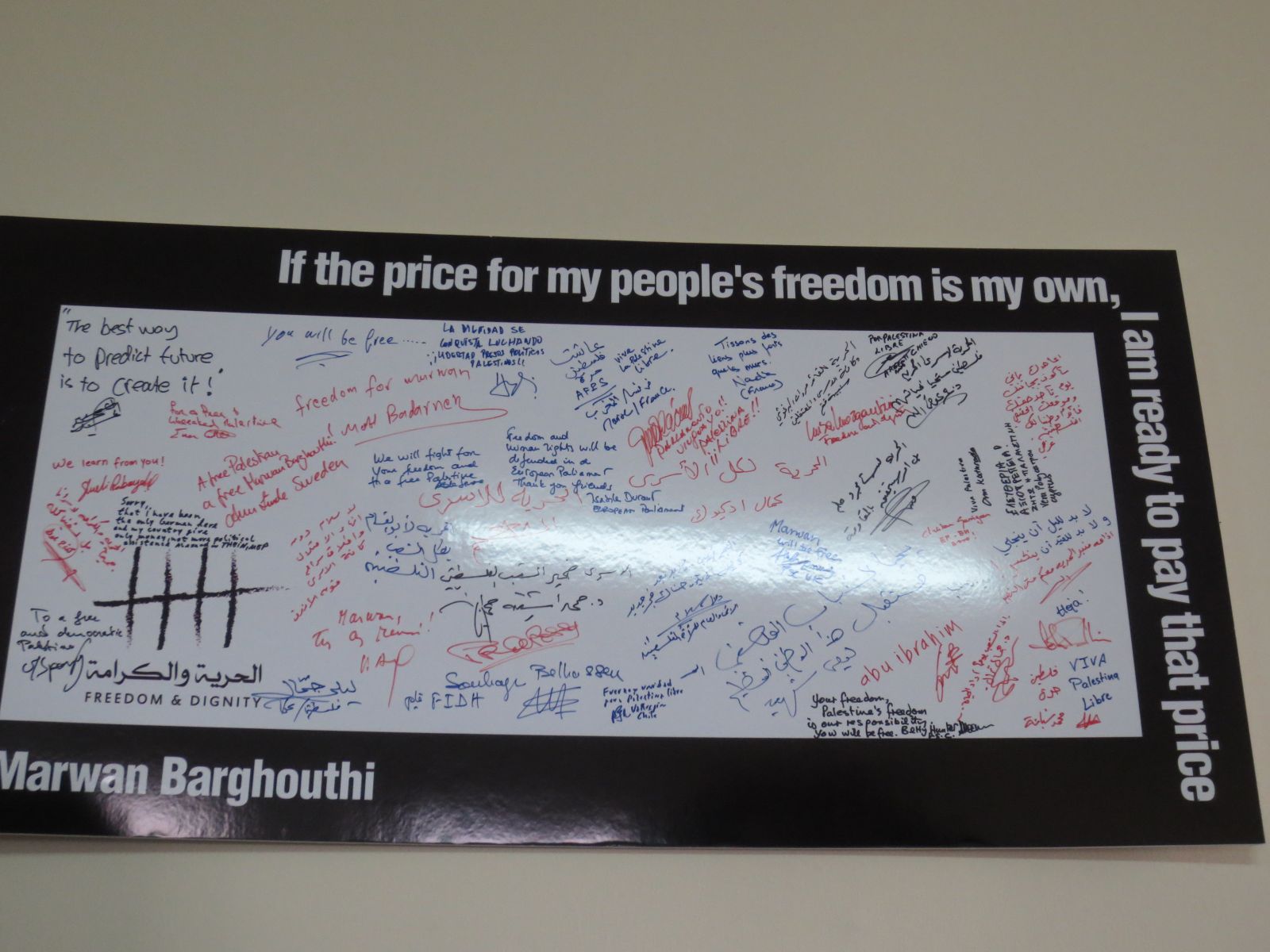Ramallah: between property speculating and struggling women
gennaio 9, 2014 in Palestina, Traduzioni da Anna Zorzi
Heaps of rubbish and clusters of piled-up houses where once was a vast plain of grass: this is the first glimpse of Ramahalla (or the “Height of God” in Arabic), the new “capital city” which has improperly replaced the real one, Jerusalem, under the Israeli military control since 1967. The town has developed ruthlessly and no planning- schemes have prevented it from spoiling its landscape. According to the Oslo agreements, Ramallah lies in the so- called zone A and so it is under the control of Palestinian authorities. But these are distinctions which are arranged on paper and once you get there you find it difficult to clearly distinguish what is Israeli from what is Palestinian, since Israel itself has never properly defined its official borders and never respected the borders of its neighbours.
A checkpoint and a wall mark the boundary between Israel and Palestine, but formally speaking Jerusalem lies on Palestinian ground, as the UNO has always refused to acknowledge the document which states the city is the legitimate capital town of Israel. Jerusalem, or “the Paris of the West Bank” as tour guides like to call it, is the seat of the Parliament and of the “Muqata’s”, a residential complex which became the headquarters of Arafat during the Israeli siege in 2002 and now is the official seat of the National Palestinian Authority. But it is a Parliament with no power, because there have been no political elections since Hamas’s victory in 2006 and assembly gathering is getting more and more complicated as most of those parliamentarians who are not imprisoned in Tel Aviv jails live in Gaza, which is like the same as living in a prison. While visiting the small, drab Civic Hall, tourists can enjoy the same warm welcome they will find throughout the town. You must be our ambassadors – the mayor says to us while showing us around – you must tell the world about the Palestinians’ sufferings, you must tell your people what living in an occupied country means. The word “occupied” makes us immediately realise that the conflict, which has been going on in this country for sixty years, is not a war which is fought to impose the territorial supremacy of a country over another one out of religious principles. That is what most Western newspapers make us believe. “Occupation” is the key word I am going to use from now on to describe the following meetings.

In Ramallah I visited the office of Marwan Barghouti, the leading political figure of the Palestinian independence and the first parliamentarian arrested by the Israeli forces. His office is now the meeting point of his supporters who, led by his wife and lawyer Fadwa, are working hard on campaigns for his release. Mrs Barghouti, an impressive woman whose eyes inspire both kindness and strength, remembers when she met her future husband twenty-nine years ago and how he warned her that their life together would be different from any ordinary marriage made of daily habits and pleasures. You offend me – she replied – as Palestine is as your country as mine and I strongly want it to be free as much as you. You feel astonished and touched by these words at the same time, they sound like a declaration of both love and political commitment, the like ones you have read in some novels on the Resistenza, like L’Agnese va a morire by Renata Viganò or la Ragazza di Bube by Cassola.
Her children, who have been orphans of their father for twelve years and who were able to share with him the emotions of the day of their diploma thanks to Photoshop, have learnt from their mother that their father’s imprisonment must be a source of pride and not of shame. And I cannot help remembering a passage from one of Gramsci’s letters to his mother, during his years in jail, where he proudly explains that he is a political detainee and he will be condemned because of his political believes. He adds that he will never be ashamed of his imprisonment as he has wanted it since he has always been loyal to his political beliefs, for which he is ready to pay with his own life. He ends by saying that just for these reasons he feels a contented man and in peace with himself. This is the universal truth of every form of resistance throughout the world and which links the small cell of Turi, where the Fascist dictatorship locked up one of the most enlightened minds in the world, to this room full of light, laughs and determination.
Fadwa’s struggle is not the private struggle of a wife to simply win back her husband. Fadwa embodies the wife of all Palestinian political prisoners, like she herself jokingly admitted while in South Africa, where Nelson Mandela launched one of her campaigns in defence of her husband. She will not give up her struggle, until all West Bank prisoners are granted the status of political prisoners and until her husband an all the other resistance fighters are set free. What a great lesson of feminism and civilization comes to us from a country which our local feminists describe as the paroxysm of relegation and submission of women!
On the coach which is carrying me away, while I am trying to metabolize the surge of emotions and feelings from this magic encounter (and I will then learn that the pathos will not leave me for the whole week), I catch the glimpse of a mural painting dedicated to Vittorio Arrigoni. I would like to take a picture of it, but it is too late, the coach is fast on its way to another story of courage and resistance. Next stop: the small village of Bili’n.





